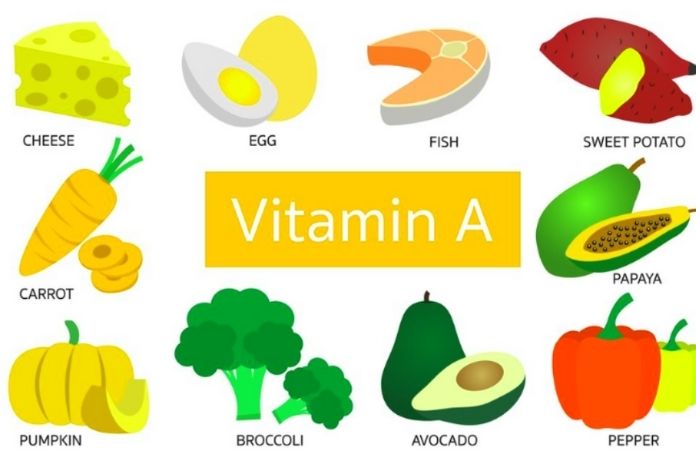It supports the immune system and fights free radicals. Essential for eyesight, vitamin A increases resistance against infection and protects the skin from sun damage. We know its properties and how to assimilate them correctly.
Benefits
The human body is an extraordinary machine, with gears that each work in synergy with the other. Like any self-respecting machinery, our body also needs a series of essential elements to function properly, avoiding serious or less serious health problems. We refer to nutrients, precious substances such as minerals, vitamins, and more, which contribute to maintaining the well-being of our body in an optimal condition. Vitamin A also belongs to the range of these precious elements. We know its main properties and how to be able to assimilate them adequately to avoid deficits.
What Is Vitamin A
Vitamin A, also known as retinol, belongs to a group of fat-soluble vitamins, including vitamin D, vitamin E, and vitamin K. It is a vitamin abundantly present in food to be deficient infrequently in ‘Power supply. Vitamin A is stored inside the liver and, like other vitamins, performs many essential functions in our body.
Properties
The list of properties of retinol is quite full-bodied. Vitamin A is important for:
- the correct functioning of the visual system since it belongs to the components of rhodopsin, a substance present in the retina that ensures the eye sensitivity to light
- the growth of bones and teeth
- the maintenance of epithelial cells
- the functioning of the immune system, by its ability to increase resistance to infections
- the protection of the skin from damage linked to sun exposure
- The ability to counteract free radicals and, consequently, oxidative stress, among the main causes of premature cellular aging.
The scientific literature has also attributed vitamin A to a possible protective role against the development of prostate cancer.
Where Is Vitamin A
Vitamin A is found in particular in foods of animal origin. It can be found, for example, in eggs, liver, milk, and its derivatives, such as butter and cheese. However, it can also be obtained from products of plant origin containing carotenoids, the latter being precursors of vitamin A. Especially rich in these substances are red, yellow, and orange fruits and vegetables, including tomatoes, berries, carrots, apricots, peaches, and watermelon.
Carotenoids are also found in green leafy vegetables, such as broccoli and spinach, and foods of animal origin, including eggs and milk. Being sensitive to heat, vitamin A tends to lose many of its properties during the cooking process of food. For this reason, it is advisable to consume foods that contain it, possibly raw or subjecting them only to short cooking.
Vitamin A Deficiency: Symptoms
The daily requirement of vitamin A corresponds approximately to 0.6-0.7 mg, increasing up to 0.95 mg during lactation. Deficiency of retinol can lead to various problems for the body, even serious ones. It can cause vision defects and, if prolonged over time, a vitamin A deficiency can lead to blindness.
A vitamin A deficiency can also:
- give rise to fetal malformations, in the case of pregnant women
- cause excessive sensitivity to infections
- hinder the normal growth process of the organism
- Have negative effects on the hair, causing an alteration in the normal activity of the sebaceous glands, with the consequent onset of dry hair, dandruff, and thickening of the scalp.
To overcome any retinol deficiency, it is possible to resort to specific supplements, but only under careful medical advice.
Excess Of Vitamin A: Symptoms
An excess of retinol accumulated in the liver can give rise to a picture of hypervitaminosis, which can lead to intoxication that manifests itself with symptoms such as migraine, nausea, vomiting, and visual disturbances. However, the symptoms disappear in a short time following a correct intake of the vitamin. In the worst case, excess vitamin A can lead to permanent damage to the liver and spleen.

